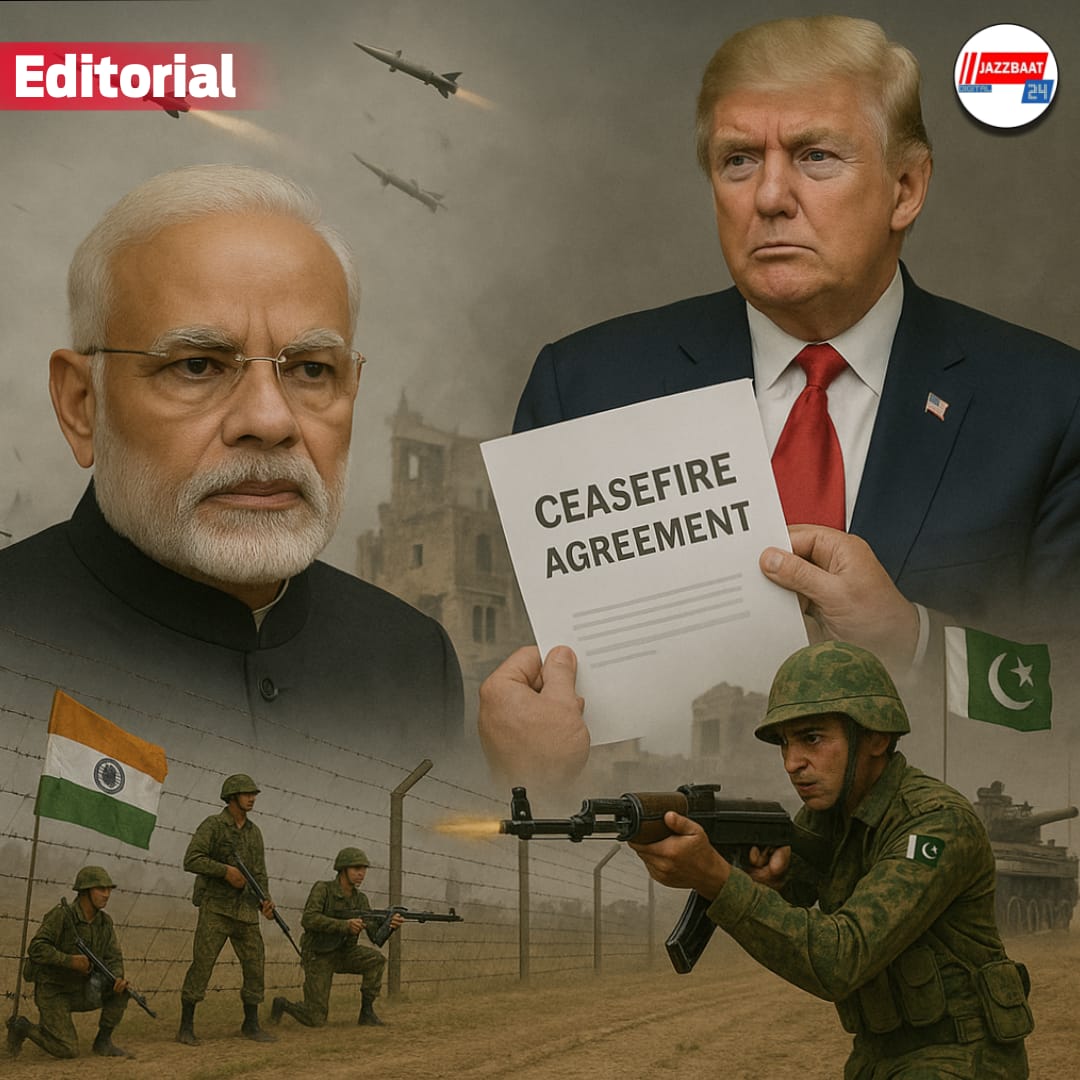
Prime Minister Narendra Modi rose to power on the back of a strong nationalist wave. He promised decisive leadership, zero tolerance for terrorism, and a new India that wouldn’t be pushed around on the global stage. Yet in 2025, after countless attacks, broken promises, and a mediated ceasefire with Pakistan involving Donald Trump of all people, one has to ask: Is this the strong leadership India was promised—or a carefully packaged betrayal?
On May 10, 2025, India and Pakistan agreed to a ceasefire, just days after Operation Sindoor—an Indian retaliation for the Pahalgam terror attack that killed 26 civilians. While five terrorists linked to Lashkar-e-Taiba and Jaish-e-Mohammed were reportedly killed and eight Pakistani airbases were targeted, it was Pakistan that called for the ceasefire—a clear sign that military pressure was working.
But instead of pressing the advantage, what did India do?
It stopped.
And worse, it did so after former U.S. President Donald Trump stepped in to mediate. Yes, the same Donald Trump who once approved aid and loans for Pakistan during his presidency—money that didn’t go to schools or hospitals, but straight into the pockets of a system that harbors and funds terrorists.
Why is India—an independent republic with one of the world’s most powerful militaries—letting a former U.S. President with a record of enabling Pakistan decide when to end operations against terrorism?
Isn’t this what Modi swore would never happen?
The Double Game
In 2019, after the Pulwama attack, the Modi government boldly declared that any future act of terrorism will be treated as an act of war. That was supposed to be the doctrine that changed India’s response forever.
And yet, here we are in 2025—after multiple attacks in Uri, Poonch, Rajouri, and now Pahalgam—watching the government issue statements, launch brief strikes, and then quietly retreat after international pressure, or worse, Trump’s interference.
So where is the “act of war” response now? Where is the sustained military pressure?
Where is the accountability?
If terrorism truly is war, why is India rushing to ceasefires the moment the world raises an eyebrow?
Just today, India reiterated that any future act of terrorism will be treated as an act of war. The statement was a reaffirmation of the policy that was supposed to end Pakistan’s cross-border terrorism once and for all. But the question now is: Will this be another slogan or will India act on it? The ceasefire and foreign mediation already suggest the government may be willing to let this statement fade into the background.
Weakness Dressed as Strategy
We’re constantly told these are strategic decisions. But let’s be honest—strategic silence and passive diplomacy are just masks for political fear and foreign dependency.
Compare India’s approach to Israel. When Hamas launched rockets at Israel, the country did not seek approval or mediation from any foreign power. Israel retaliated immediately, unapologetically, and with full force. They didn’t wait for UN approval, U.S. blessings, or peace talks. They acted decisively and protected their citizens without hesitation.
And yet India—despite having the world’s largest standing army and a nuclear arsenal—backs down repeatedly, even when its people are slaughtered.
Modi built his brand on nationalism, but his government’s actions on terrorism have looked more like press conferences and diplomatic notes.
Trump: The Wrong Ally
Let’s not forget: Donald Trump, who now claims to stand with Modi, is the same man who funded Pakistan during his presidency. He shook hands with Imran Khan, tweeted praise for Pakistan’s anti-terror efforts, and allowed the flow of American taxpayer money into a nation that houses Hafiz Saeed and Masood Azhar.
So what exactly is his credibility on terrorism?
Modi calling in Trump—or worse, allowing Trump to shape ceasefire decisions—is not just a diplomatic misstep. It’s a national disgrace.
This Isn’t Foreign Policy. It’s Surrender.
Strong nations do not ask for permission to defend their citizens. They act.
Modi promised strength. He delivered symbolism. He promised revenge. He gave us rhetoric. He declared terrorism a war, then stopped fighting it halfway.
And by letting someone like Trump, with a history of cozying up to Pakistan, play peacemaker, the Modi government has shown that it is more interested in international approval than national honor.
This is not how a sovereign nation responds to terrorism.
This is not leadership.
This is abdication.
India deserves more than sound bites and ceasefires. India deserves justice. It deserves fearless leadership, not foreign-mediated restraint. If this is the new India, it looks dangerously like the old one—confused, compromised, and complicit in its own humiliation.